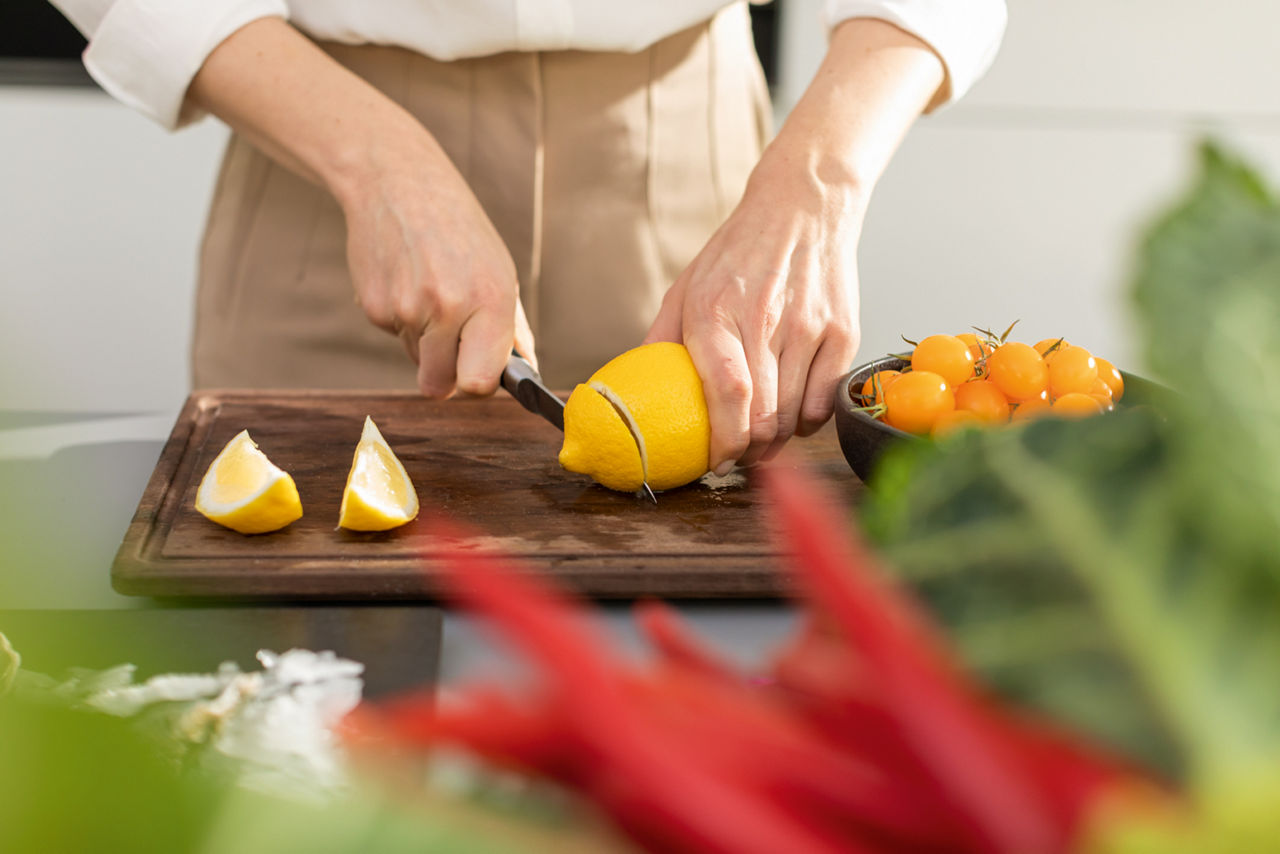What’s even more worrying is that 74% of this wasted food could have been consumed. This not only costs UK households an estimated £17 billion annually but also contributes to at least 18 million tonnes of greenhouse gas emissions, which we all agree need to be reduced for a greener planet.
The need to reduce food waste is clear, and many initiatives are already underway, including planned local authority collections in England by March 2026. But did you know that we can all make a significant difference right from our own kitchens? Here are some practical tips to help reduce food waste at home.

Keep your fridge at the right temperature
An easy way to prolong food freshness is by maintaining the correct fridge temperature. Ideally, it should be set between 0-5°C and keeping it at this temperature can help keep food fresh for three days longer than usual. To check if your fridge is at the right temperature, use a thermometer. Avoid opening the door frequently, as this can affect the reading. Surprisingly, the average UK fridge is often set at least 2°C too warm, which can lead to food going off prematurely.
Organise your fridge and cupboards
Regularly rotating the items in your fridge and cupboards can help prevent wastage. It may seem obvious, but you should organise your food by placing items with the shortest dates at the front and those with longer dates at the back. This way, you’ll easily spot what needs to be used first, making meal planning simpler and helping to ensure that you don’t forget about food items until it’s too late.
Also be mindful of storing food items in the right position in your fridge. Items that don’t need to be cooked before eating are best stored on the upper shelves, for example, cured meats and leftovers. Dairy items and eggs are best placed on middle shelves and the bottom shelves, where it is coldest, are best reserved for raw meat and seafood. These items should be kept between 0°C and 3°C to lock in freshness and prevent harmful bacteria.
Understand food labels
Many people confuse “use by” and “best before” dates on food packaging, leading to perfectly edible food being thrown away. “Use by” dates refer to safety; food should not be consumed after this date, even if it looks fine. On the other hand, “best before” dates indicate quality. Foods can often still be consumed after this date, although they may not taste as fresh. For example, biscuits can last for up to six months past their best before date, while tinned goods may last for a year or more. Familiarising yourself with these terms can help reduce your household food waste significantly.

Optimise your food shopping and meal planning
When shopping, choose versatile ingredients that can be used in multiple meals throughout the week. This reduces waste and saves you money. Always make a shopping list to avoid unnecessary purchases. Pair this approach with weekly meal planning to use up your ingredients before they spoil. Preparing meals in advance and freezing them makes the most of your groceries, helps you manage portions better and saves time in the kitchen.

Embrace frozen foods
Frozen foods such as fruit, veg and fish can be a game-changer when it comes to reducing waste. These items have a longer shelf life and are often more affordable than fresh produce. What’s more, frozen foods such as vegetables can retain more nutritional value than their fresh counterparts, as they are typically frozen at peak freshness.
Eco-friendly solutions
While we can all take steps to reduce food waste, some is unavoidable as it is generated from everyday life – think eggshells, fruit and veg peelings, leftovers from meals and coffee grounds to name but a few. Incorporating a Food Waste Disposer (FWD) underneath your kitchen sink can help manage this day-to-day waste more sustainably. These devices grind scraps into small particles that can be flushed away at source through the standard plumbing pipes, reducing the amount of waste going to landfill. By investing in a Food Waste Disposer, you not only lower your environmental footprint but also make daily routines easier, keeping your kitchen cleaner and more hygienic.
You can read more about the benefits of food waste disposers HERE
It’s clear to see how a few simple changes can significantly cut down on household food waste – benefitting both the environment and your purse. Add in a Food Waste Disposer for an even greener way to manage waste. You can learn more about Our Elite Slimline FWD range HERE


Contact our team
Fill in the contact form and one of our experts will get back to you within 48 hours.


